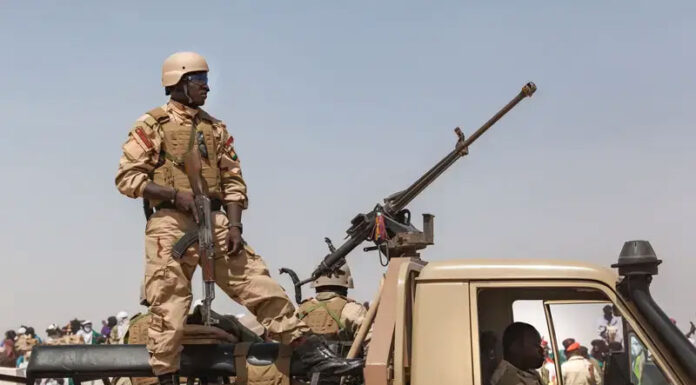At least 40 individuals lost their lives when armed assailants attacked a Christian farming community in Nigeria’s north-central region, President Bola Tinubu announced on Monday, April 14, 2025. The assault took place late Sunday night, April 13, in the Zike community of Plateau state, marking the latest in a series of violent incidents affecting Africa’s most populous nation.
President Tinubu expressed condolences to the victims and their families while directing security agencies to investigate the incident thoroughly.
Amnesty International reported that the victims included children and elderly individuals who were unable to escape the sudden attack. A resident noted that the assailants destroyed and looted homes within the community. The witness observed bodies following the incident and suggested the death toll might exceed 50. No arrests have been made to date.
The attackers are suspected to be Fulani herders, a primarily Muslim group, who have been involved in mass killings in Nigeria’s northwest and central regions. Such attacks have become more frequent as herders and farmers vie for limited land and water resources.
Samuel Jugo, spokesperson for the Irigwe Development Association in the Bassa area, stated that at least 75 individuals from the Irigwe community, a Christian ethnic group, have been killed since December 2024. Despite additional security forces being deployed, Jugo described the latest attack as “very provocative, vexing and undeserving.”
The ongoing conflict has both ethnic and religious dimensions, with predominantly Muslim Fulani herders clashing with predominantly Christian farming communities. The conflict has intensified over recent decades due to factors such as population pressure, climate change, and the decline of traditional conflict resolution mechanisms.
Data from Amnesty International highlights the alarming extent of violence in Plateau state, with 1,336 individuals killed between December 2023 and February 2024. This high number of fatalities indicates that the measures taken by the Tinubu administration to reduce the violence have not been effective.
The increasing scarcity of resources has exacerbated the conflict in Nigeria’s Middle Belt region. Desertification and altered rainfall patterns have driven Fulani herders south in search of grazing land, leading to disputes with farming communities. Ambiguous land laws and weak enforcement have further complicated efforts to achieve a peaceful resolution.
While some observers view the violence as primarily driven by resource competition, others note religious undertones. The Fulani herders, often equipped with advanced weapons, have been accused by some Christian groups of pursuing an agenda of Islamization. However, many security experts emphasize that the root causes of the conflict are linked to competition for dwindling natural resources.
The Nigerian government has attempted various measures to address the conflict, including enacting anti-grazing laws and establishing grazing reserves. In 2019, the government launched the National Livestock Transformation Plan, aiming to shift Nigeria’s livestock sector from a pastoral system to a stationary ranching system. However, implementation has been hindered by distrust between herders and farmers, as well as ongoing security concerns.
The violence in the north-central region is one of several security challenges Nigeria faces. In May 2024, a similar attack in remote villages in Plateau state resulted in at least 40 fatalities. The violence over land resources is separate from the insurgency led by Boko Haram. This jihadist group has waged a campaign against Western education and secular governance in Nigeria since 2009.
Conflict between herders and farmers has spread beyond Nigeria’s borders, affecting other West and Central African countries, including Mali and Burkina Faso. According to research from the Africa Center, more than 15,000 deaths have been linked to farmer-herder violence across the region since 2010.
International organizations monitoring the situation have called for more comprehensive approaches to address the underlying causes of the violence. These include investment in land management infrastructure, training local leaders in dispute resolution techniques, and building trust between communities and security forces.
As communities in Plateau State mourn their losses, concerns persist about the potential for further violence in the region. With climate change expected to increase pressure on already scarce resources, addressing the root causes of the conflict will be essential for breaking the cycle of violence that has claimed thousands of lives in recent years.








